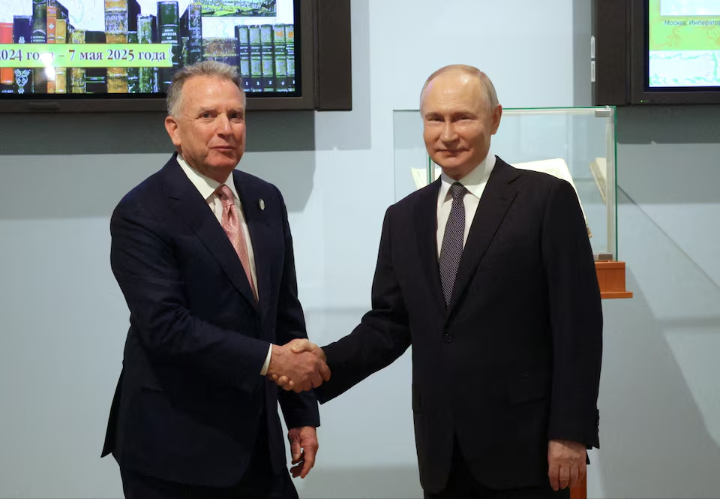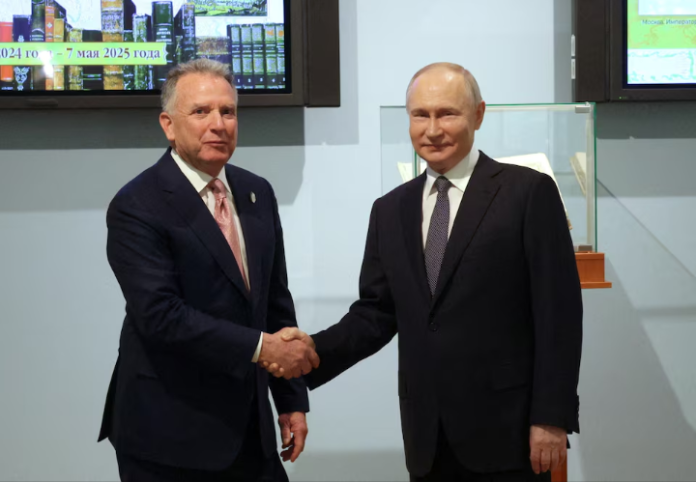In a dramatic diplomatic move, U.S. President Donald Trump’s special envoy, Steve Witkoff, met Russian President Vladimir Putin in St. Petersburg on Friday to discuss a possible peace deal in Ukraine. The four-hour meeting, held at the city’s presidential library, was described by Russian officials as centered on “aspects of a Ukrainian settlement.”
This latest meeting comes at a critical time. With tensions rising globally—especially with China and Iran—and the conflict in Ukraine showing no signs of slowing, Washington appears to be stepping up its efforts to broker peace. Trump, increasingly frustrated with the stalemate, has publicly pressured Moscow to speed up negotiations. In a post on Truth Social, he urged, “Russia has to get moving. Too many people are dying, thousands each week, in a terrible and senseless war.”
Despite multiple rounds of talks this year, progress on a full ceasefire remains elusive. According to inside sources, Ukrainian officials have even submitted a list of recent Russian strikes they claim violate an earlier energy infrastructure ceasefire agreement.
While Witkoff’s visit might signal renewed diplomatic momentum, the Kremlin is holding firm on its demands: that Ukraine must not join NATO, that its military strength should be limited, and that Russia should gain full control over four contested regions—claims Kyiv continues to reject as unacceptable.
Putin, however, claims to be open to a complete ceasefire “in principle,” though he emphasizes that deeper issues must be resolved first. Russia believes its control of nearly 20% of Ukrainian territory gives it leverage, while Ukraine views Russia’s terms as tantamount to surrender.
Kremlin spokesperson Dmitry Peskov downplayed the meeting, stating it wasn’t expected to be “momentous,” but acknowledged it as an opportunity for Russia to express its concerns directly. The meeting also fueled speculation about a potential face-to-face summit between Trump and Putin. While the two leaders have spoken by phone since Trump’s return to office in January, they have yet to meet in person.

Witkoff was seen leaving his hotel earlier with Kirill Dmitriev, Putin’s investment envoy, signaling that economic cooperation—particularly around Arctic development and rare earth minerals—was also on the table.
This marks Witkoff’s third visit to Russia this year. His previous February trip ended with the release of detained American teacher Marc Fogel. Just this week, another high-profile exchange occurred when Russia released U.S. citizen Ksenia Karelina in return for Arthur Petrov, a Russian accused of illegally smuggling sensitive electronics to Moscow.
Witkoff is now headed to Oman for crucial talks with Iranian officials regarding their nuclear program, a subject Trump has threatened military action over if diplomacy fails.
As global tensions rise and the war in Ukraine rages on, all eyes remain on Washington and Moscow to see whether these latest moves will lead to a lasting peace—or yet another diplomatic deadlock.



